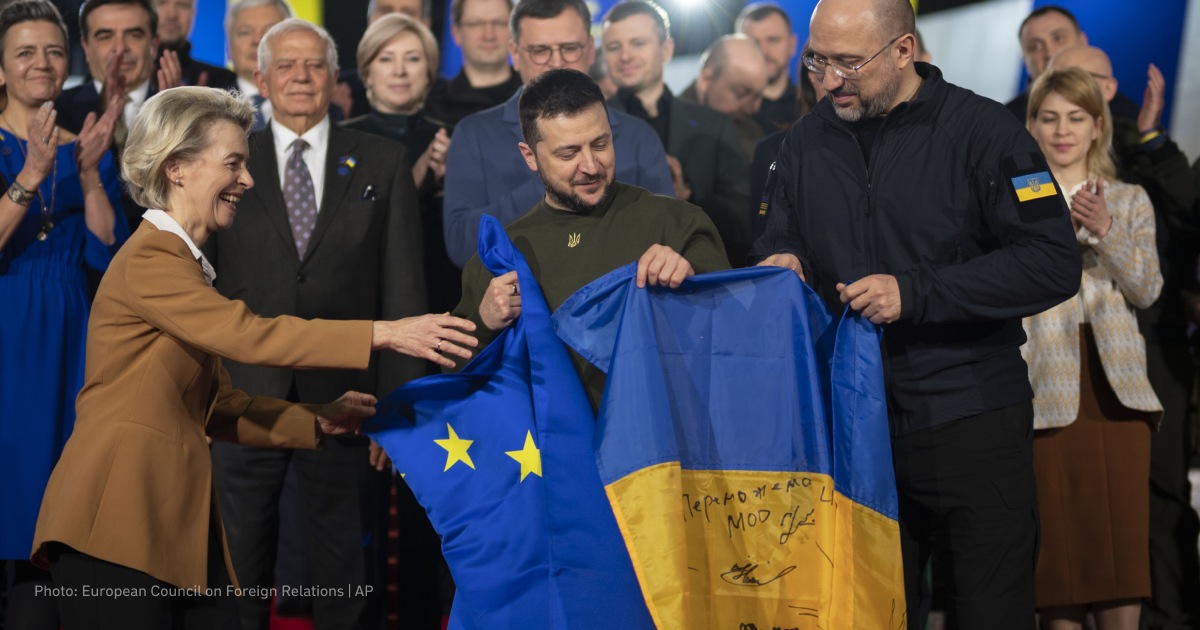The European Commission recommends opening negotiations for Ukraine's accession to the EU. When will the process start?
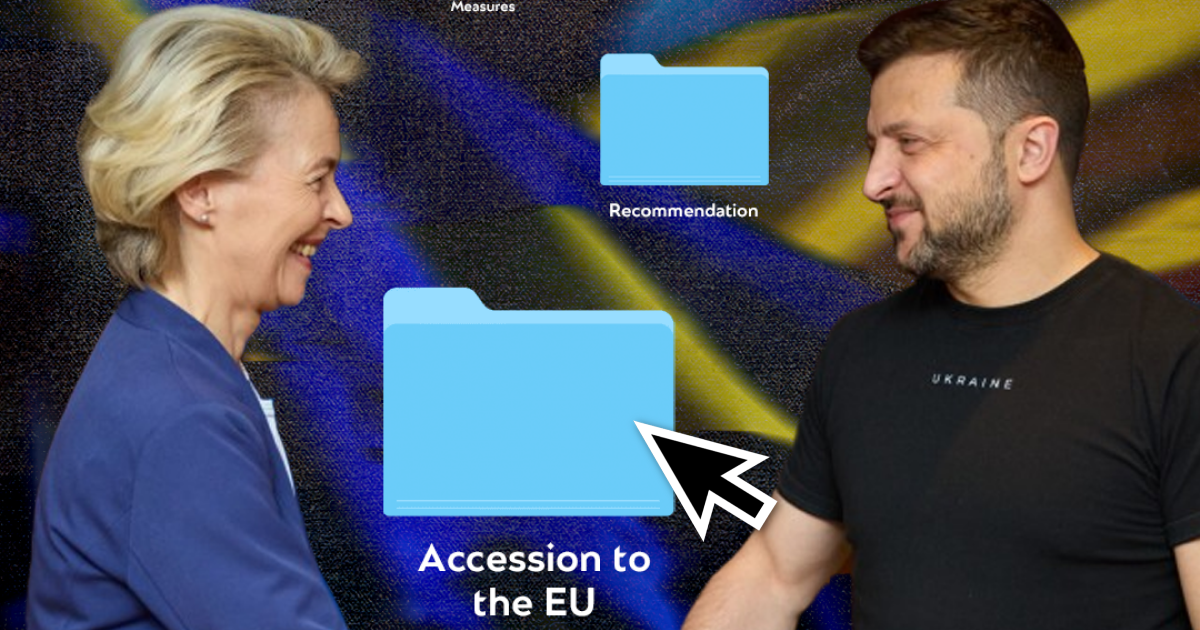
What has happened so far?
The European Commission recommends that the European Council open negotiations for the accession of Ukraine and Moldova to the EU.
Bosnia and Herzegovina needs to implement additional reforms to be recommended for accession. The European Commission has also granted candidate status to Georgia.
This was stated by European Commission President Ursula von der Leyen at a briefing in Brussels.
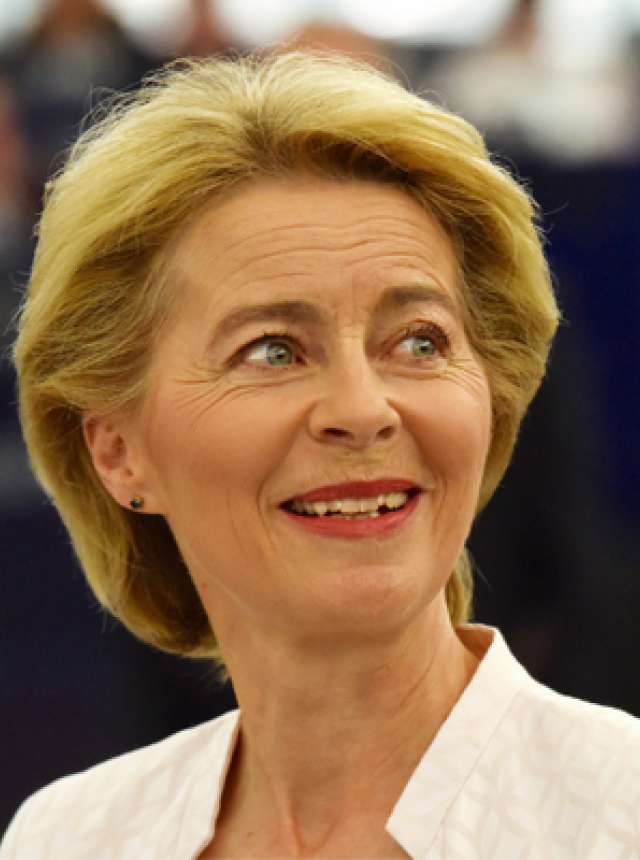
We recommend that the Council also adopt a framework for these negotiations, which will continue in parallel with the implementation of all reforms in Ukraine,
von der Leyen said.
The European Council will meet in December to consider the recommendation for negotiations on Ukraine's EU membership.
Once it is approved, accession negotiations will start immediately.
The decision to open negotiations means that Ukraine will enter a new stage of European integration.
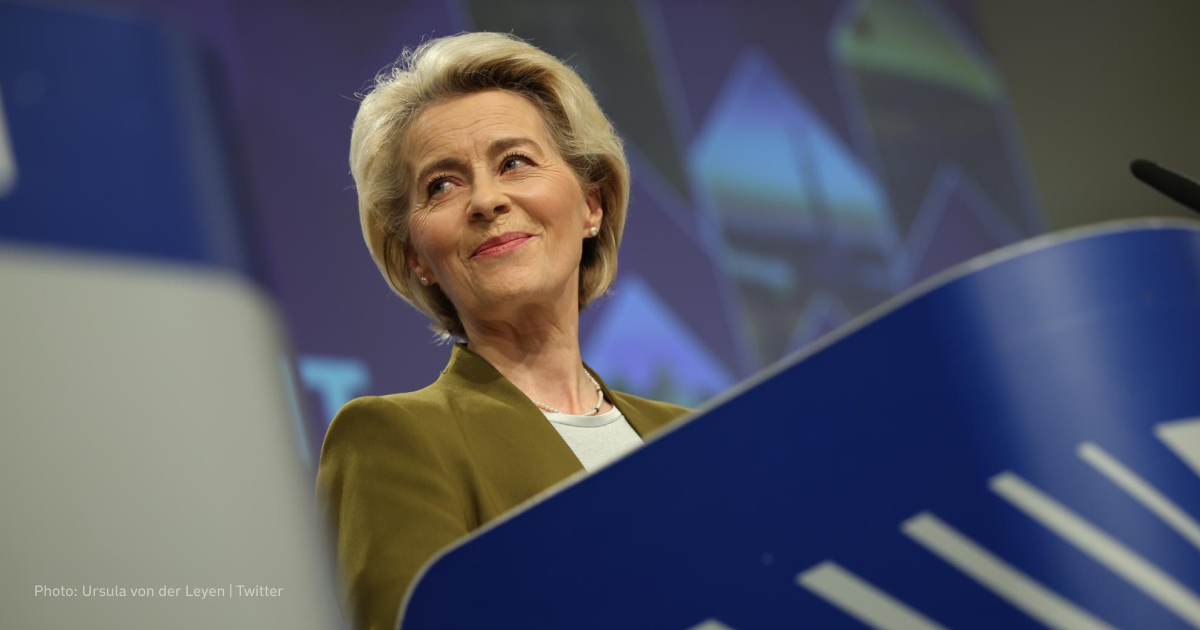
According to the President of the European Commission, Ukraine has implemented 90% of the reforms expected by the EU when it granted Ukraine candidate status.
Von der Leyen added that the duration of the negotiations would depend on the speed of the remaining reforms.
Earlier, Ukrainian Deputy Prime Minister for European and Euro-Atlantic Integration Olha Stefanishyna said, "The process related to the seven recommendations is over".
Ukraine's progress towards European integration
In its report, the European Commission noted Ukraine's progress in public administration reform, digitisation of services, decentralisation, judicial reform and improvement in establishing an institutional framework to fight corruption.
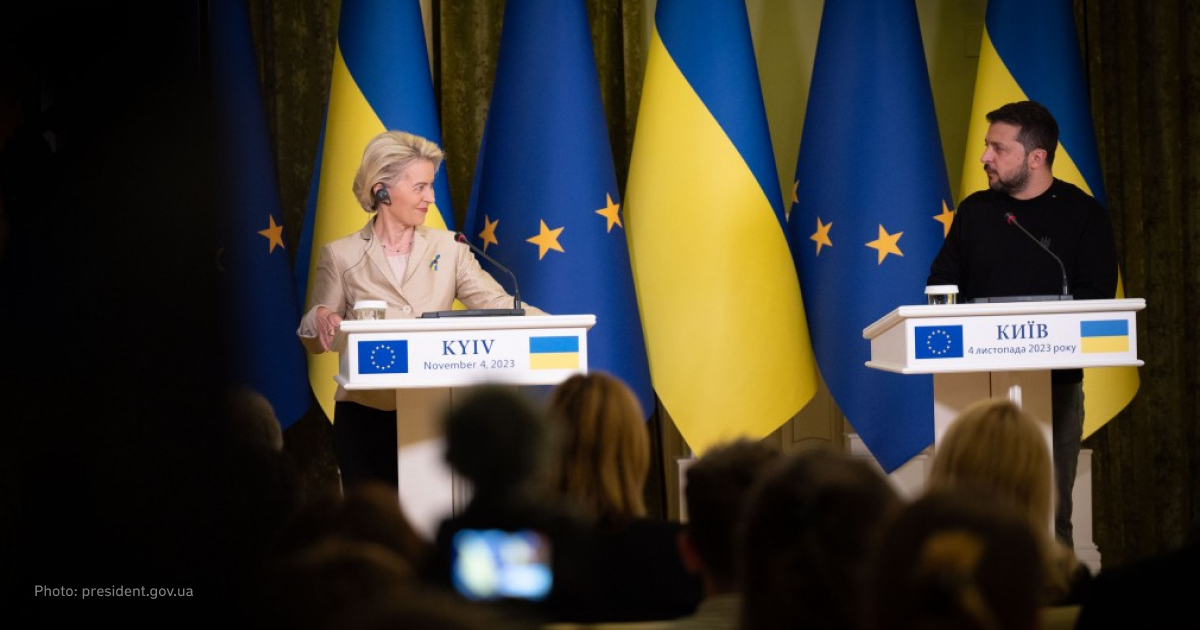
The granting of EU candidate status to Ukraine in June 2022 has only accelerated the reform efforts,
said the open report published on the European Commission's website.
Radio Liberty also obtained a secret internal European Commission document.
According to journalists, the Commission considers four of the seven criteria necessary to start negotiations on Ukraine's accession to the EU to be fully met.
These are:
- The procedure for the selection of judges for the Constitutional Court of Ukraine following the recommendations of the Venice Commission, which provided for the exclusion of candidates from the competition based on the negative opinion of the Advisory Group of Experts. Parliament also retained six members of the group instead of seven. However, the decision will be taken by a majority vote, including at least two international members.
- Election of members of the High Judicial Council and the High Qualification Commission of Judges of Ukraine;
- Fight against money laundering under the standards of the Financial Action Task Force (FATF) and adoption of a plan to reform the entire law enforcement sector;
- The Law on the Media in line with European legislation.
What has Ukraine failed to do?
The European Commission believes that Ukraine should, among other things, finalise the anti-oligarchic law, the law on national communities, and the anti-corruption reform.
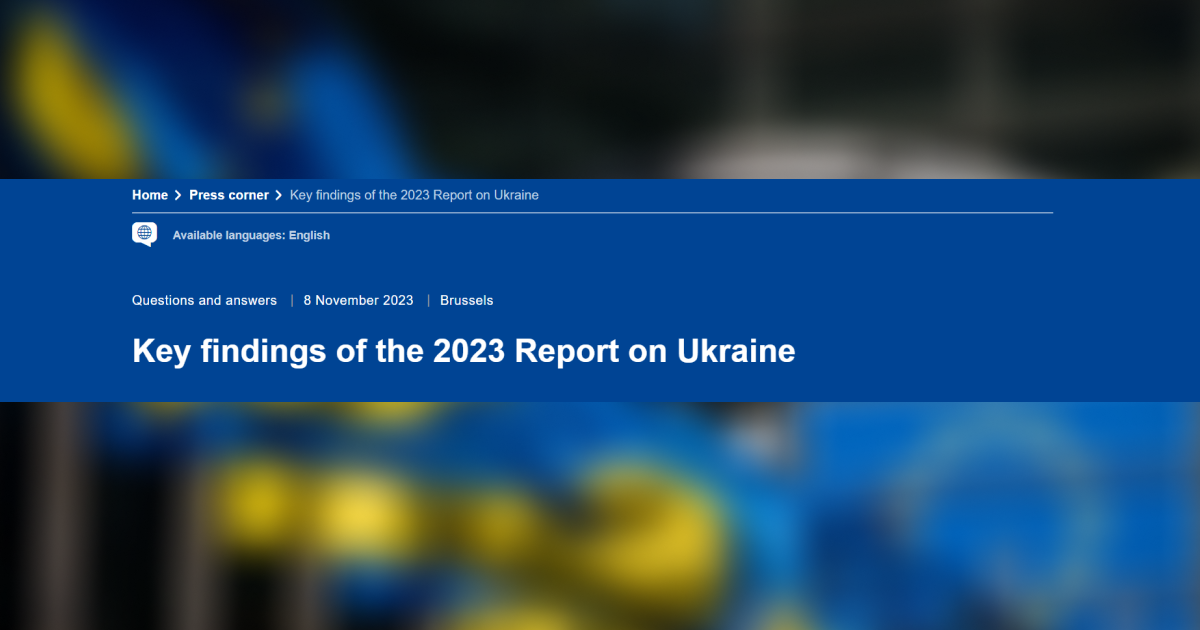
According to the published report, Ukraine should:
- adopt a law to increase the staff of the National Anti-Corruption Bureau of Ukraine;
- remove restrictions on the NACP's authority to verify assets that have already been verified, as well as those acquired before the declarant entered public service;
- adopt a law on lobbying as part of the anti-oligarchic action plan;
- adopt all the recommendations of the Venice Commission of June and October 2023 on the Law on National Communities. Among the shortcomings, the Commission identifies, in particular, a too-long period of restriction on the use of Russian as a community language.
Ukraine is also advised to revise the Criminal Procedure Code and the Criminal Code to ensure more efficient handling of grand corruption cases and to introduce changes to ensure the independence of the Specialised Anti-Corruption Prosecutor's Office.
Response of Ukraine and the world
The President of Ukraine called the European Commission's decision a "right step".
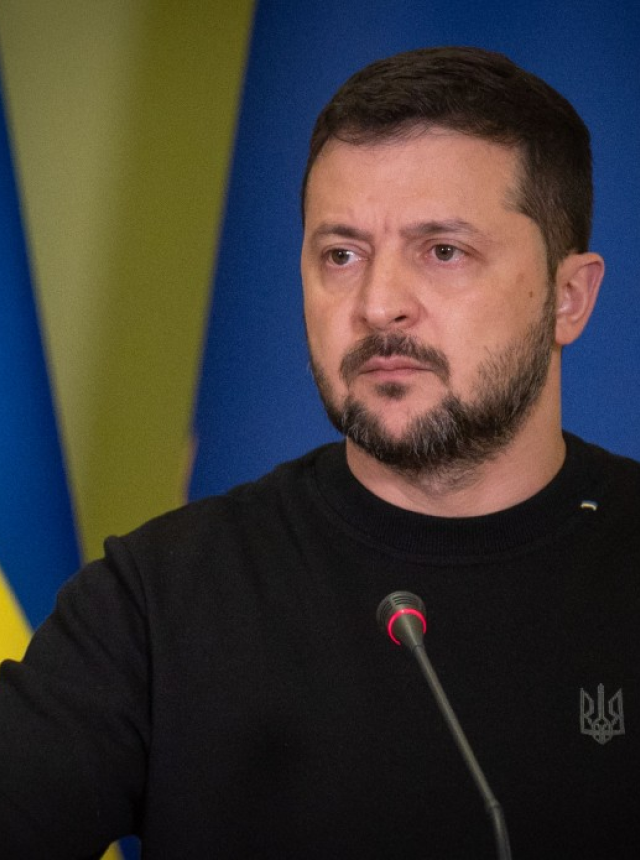
The state should be in the European Union. Ukrainians deserve it both for their defence of European values and for the fact that even during a full-scale war, we keep our word by developing state institutions,
Volodymyr Zelenskyy said.
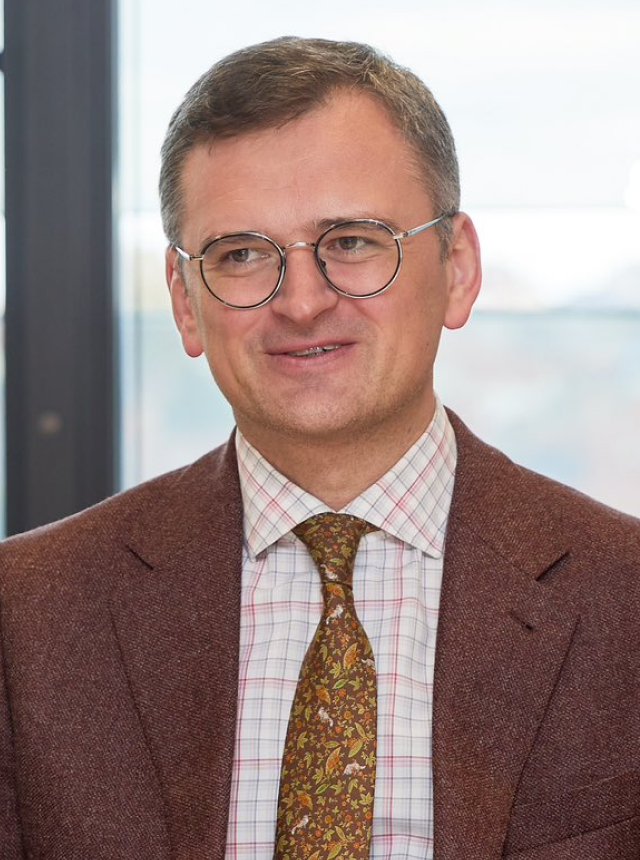
I recall the Revolution of Dignity and all the years that have brought us to this moment. Our struggle and sacrifices are not in vain. Our transformation is recognised. Our dreams and hopes are coming true,
commented Dmytro Kuleba, Minister for Foreign Affairs of Ukraine.
President of Sakartvelo Salome Zurabishvili congratulated Ukraine and expressed confidence that Ukraine and Georgia will soon become EU members.
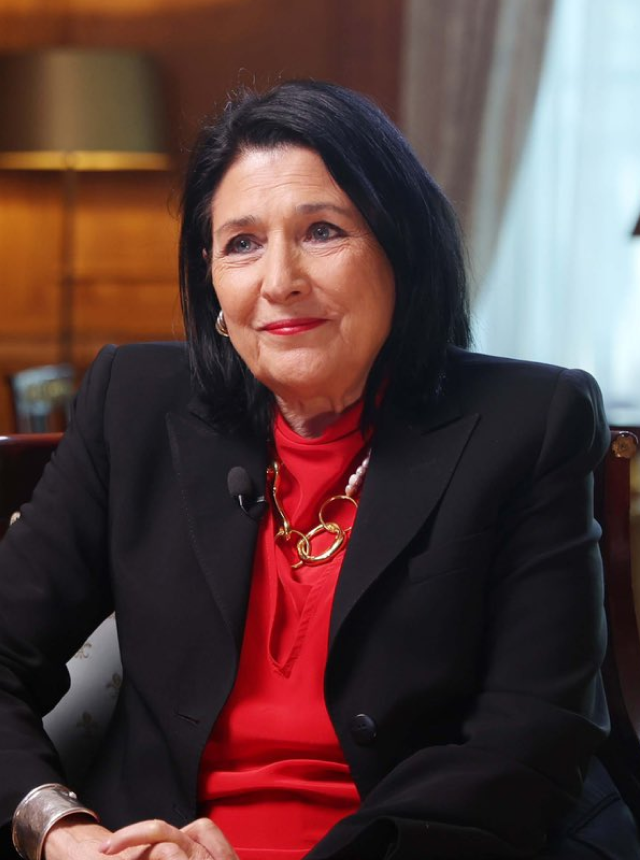
Your determination and your victorious struggle were important for making this historic decision,
Zurabishvili told Zelenskyy.
Congratulations were also extended by EU High Representative for Foreign Affairs and Security Policy Josep Borrell, Prime Minister of Estonia Kaja Kallas, President of Lithuania Gitanas Nausėda, German Foreign Minister Annalena Baerbock, and President of the European Parliament Roberta Mecola.
What preceded the recommendation on accession negotiations
In June 2022, the European Council granted Ukraine candidate status for EU membership. The same decision was made for Moldova at the same time.
A year later, the European Commission gave an interim assessment of Ukraine's fulfilment of the requirements. At that time, it declared that two of the seven criteria had been fully met.
On November 4, 2023, President of the European Commission Ursula von der Leyen came to Kyiv on a working visit. During her speech, she noted Ukraine's progress in implementing reforms during a full-scale war.
